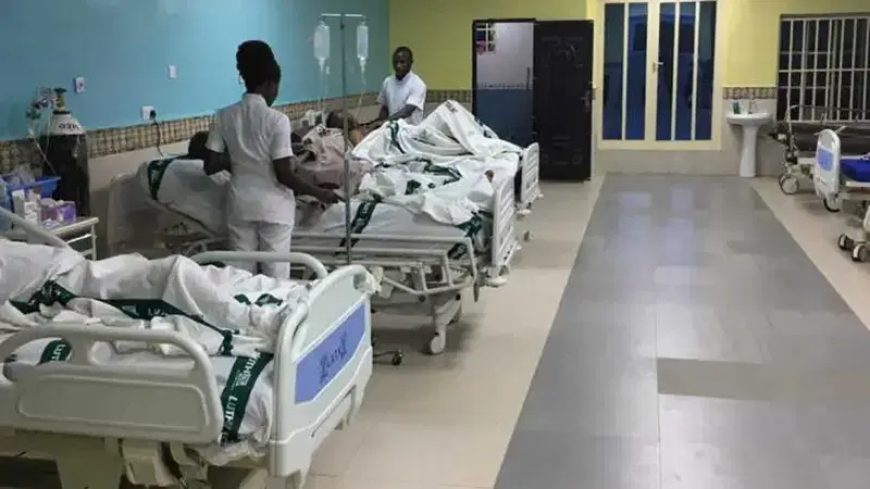Only one general hospital has MVA kit, two can perform caesarean sections – Study

A new study has revealed alarming deficiencies in the capacity of general hospitals across Abia State to provide Comprehensive Emergency Obstetric and Newborn Care (CEmONC)—a critical component in reducing preventable maternal and infant mortality.
The assessment, conducted between September and December 2024, showed that only one out of 17 general hospitals in the state—Arochukwu General Hospital—had a Manual Vacuum Aspiration (MVA) kit, while only two facilities were equipped to perform caesarean sections (CS).
The study further indicated that none of the secondary health facilities in Abia had the infrastructure or equipment to provide all nine internationally recognized CEmONC signal functions, essential for safe childbirth and newborn survival.
The findings, presented by Dr. Onuka Okorie, Sector Wide Approach (SWAP) Desk Officer for Abia State, exposed additional gaps, including poor laboratory and pharmacy services. Only nine of the 17 hospitals had laboratories, and two had no pharmacy units at all.
Shockingly, most of the facilities lacked neonatal care units, and none could deliver all 12 critical newborn care (CNC) functions. Only Arochukwu General Hospital attained 18 of the 21 combined CEmONC signal functions assessed.
Speaking during the public presentation of the report, Dr. Okorie emphasized that the findings should serve as a wake-up call. He noted that the initiative was part of Nigeria’s national strategy to reduce maternal deaths from complications such as hemorrhage, sepsis, and eclampsia, as well as to ensure timely emergency care for mothers and infants.
The Permanent Secretary of the Abia State Ministry of Health, Dr. Ifenyinwa Uma-Kalu, who represented the Commissioner for Health, acknowledged the seriousness of the report. She, however, highlighted ongoing state efforts to revamp the sector, including:
15% of the 2025 state budget allocated to health,
Renovation and equipping of 200 Primary Health Centres (PHCs),
Upgrade of five General Hospitals, and Rehabilitation of tertiary health facilities in Aba and Umuahia.
Dr. Uma-Kalu also noted that the state government had recently approved the recruitment of 771 healthcare workers to strengthen service delivery.
Despite these efforts, stakeholders at the event called for immediate action to upgrade general hospitals—arguing that only they are equipped to deliver full CEmONC services. They urged the establishment of:
Fully functional neonatal care units,
Pharmacy departments,
Upgraded surgical theatres and labor wards.
Dr. Chioma Oduenyi, Project Director for Jhpiego, an international health NGO affiliated with Johns Hopkins University, praised the transparency of the assessment. She called for federal intervention to support ongoing state-level efforts.
“The health system in Nigeria is in a gory state. These findings show we still have a long way to go,” she said, while commending Abia State for taking early steps to address the gaps.
Dr. Damian Asogwa, a Jhpiego consultant, urged all stakeholders to focus on collaboration rather than politicizing the findings, while Dr. Joy Okechukwu from General Hospital Aba expressed optimism that the evidence-based report would drive real change.
Other speakers, including Dr. Nwalozie Ugochukwu from Obingwa General Hospital, raised concerns about delays in referrals due to cultural and religious beliefs—often contributing to preventable deaths. He advocated for public enlightenment and timely access to formal medical care.
The event concluded with a call for evidence-based decision-making and stronger partnerships among federal and state actors, donor agencies, and healthcare providers to enhance maternal and child health outcomes in Abia and beyond.

 admin
admin 


